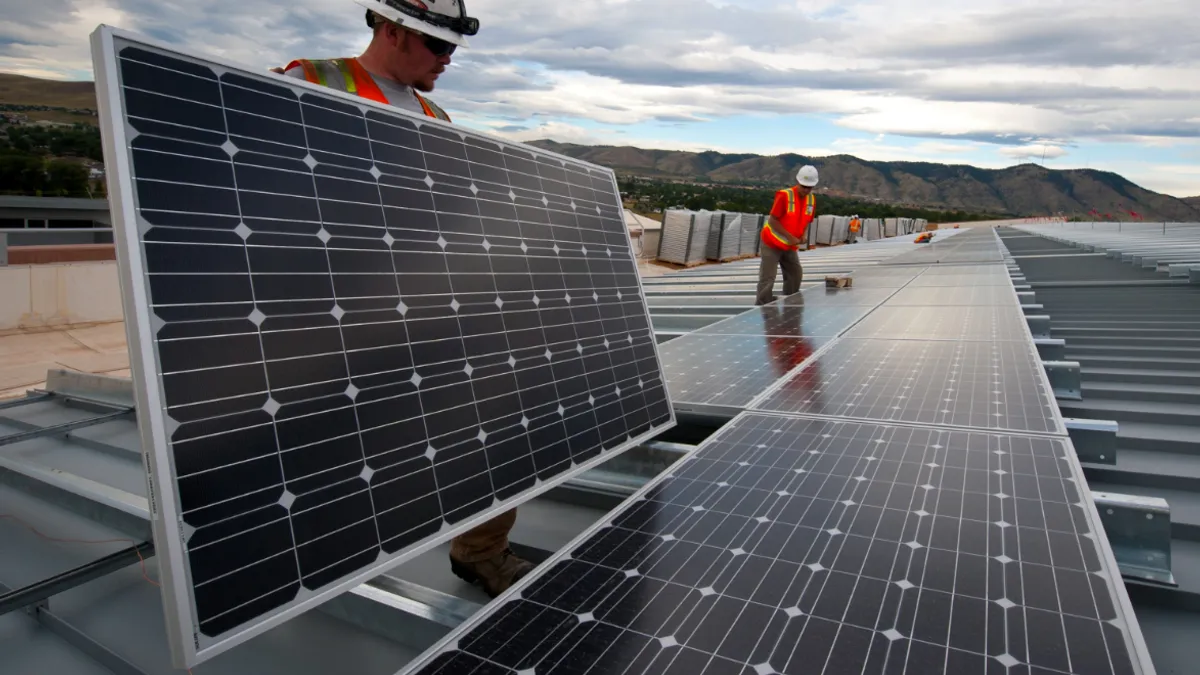Dive Brief:
- Berkshire Hathaway Energy subsidiary Rocky Mountain Power has proposed new fixed fees, a residential demand charge and lower remuneration rates for rooftop solar customers, raising monthly bills for the average solar customer from $55 to $74.the Salt Lake Tribune reports.
- Rocky Mountain Power wants solar customers to pay a $15 fixed customer charge, $9.02/kW for peak period demand and $0.0381/kWh for the amount of energy used. Existing customers would be grandfathered in, however, keeping their existing rates.
- The proposed rates would apply to customers who request a net metering connection after December 9, 2016. The utility said current net metering customers can remain on the same rate schedule.
Dive Insight:
Utah appears to be the next battleground over compensating rooftop solar customers for their excess energy. PacifiCorp subsidiary Rocky Mountain Power has proposed new rates for solar customers that would raise their bills and could make rooftop solar less appealing in a similar fashion to Arizona and Nevada.
The utility said it has conducted a study that shows a typical rooftop solar customer underpays their actual cost of service by about $400 per year, amounting to $6.5 million each year that is shifted to other residential customers. And RMP says that amount is forecast to grow to as much as $78 million annually if the issue is not addressed.
"Over the next 20 years the cost shift to other customers is estimated to be about $667 million," the utility said in a statement.
RMP said its study showed residential net metering customers now receive bill savings worth about $0.105/kWh they produce, while the utility could purchase from large-scale renewable projects at about a third of the cost. The utility is also proposing a new $60 application fee for most net metering customers to "cover the actual costs of processing the applications."
The extent to which net-metered customers benefit or cost the utility grid is a contentious issue in states around the country. In Nevada, a high-profile example, regulators last year slashed net metering rates and initially declined to grandfather in other customers, though a compromise between NV Energy and solar companies has since reversed that.
In Arizona, regulators are contending with a value of solar docket that could set precedents beyond its borders for solar rate reforms. Utilities have proposed similar rate schemes, including residential demand charges on rooftop solar customers, but the critics have said demand charges in particular are hard for the average rate payer to understand.
And in 2015, Arizona's public power utility Salt River Project levied demand charges on solar customers. The move proved detrimental to the solar sector, with developers claiming new applications for rooftop arrays dropped more than 90% in SRP's service territory.














